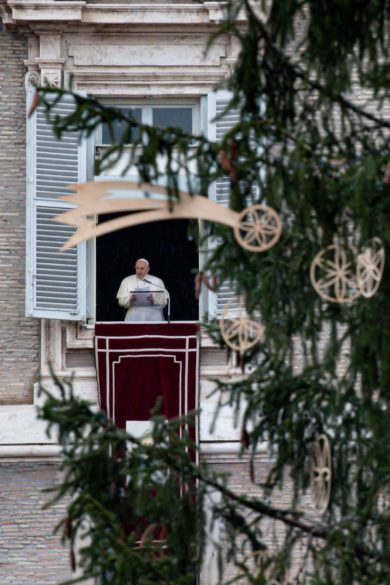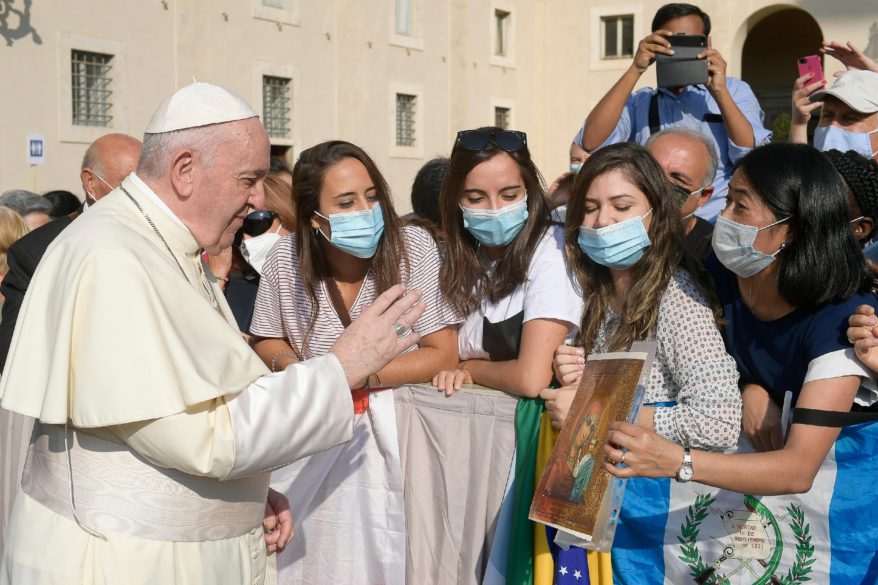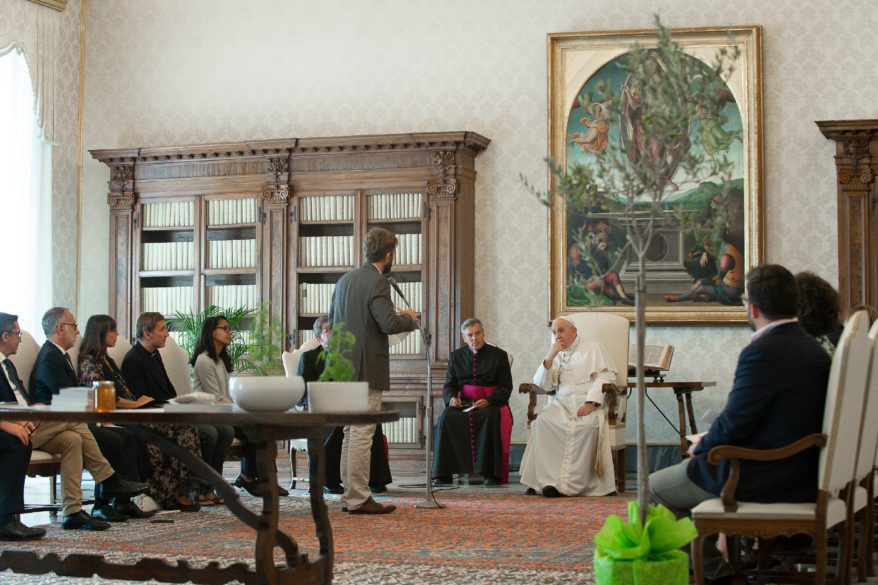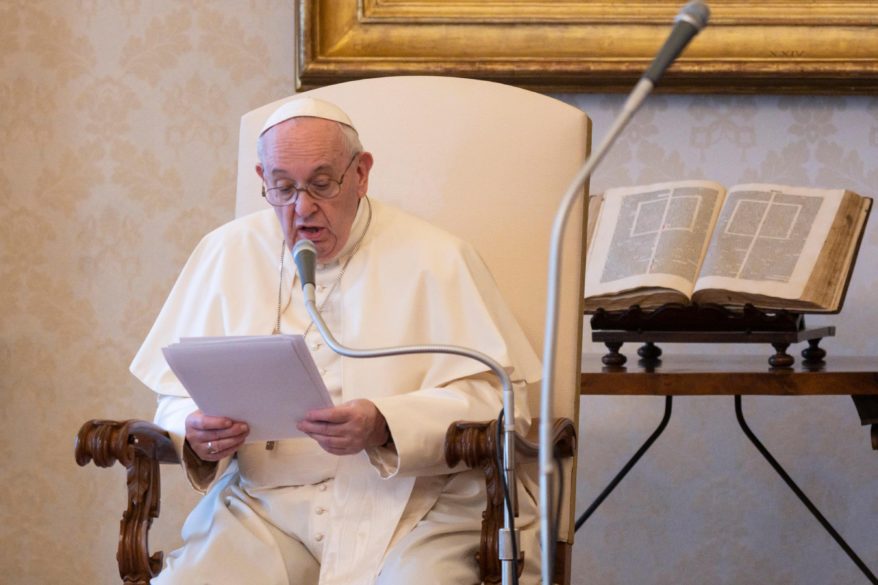By Cindy Wooden
VATICAN CITY (CNS) – At the beginning of a year people hope will mark the end of the COVID-19 pandemic, Pope Francis urged them to create a “culture of care,” including by sharing the gift of their time with others.
Despite suffering from a bout of sciatica, nerve pain, that left him unable to preside over Mass Jan. 1 in St. Peter’s Basilica, the pope sent a homily focused on God’s blessings and on sharing those blessings with others.
Consecrating the new year to Mary, the pope prayed that she would “care for us, bless our time, and teach us to find time for God and for others.”
Cardinal Pietro Parolin, Vatican secretary of state, read the pope’s homily as he celebrated the Mass for the feast of Mary, Mother of God, and for the Catholic Church’s celebration of World Peace Day.
Only about 100 people, all wearing masks, were in the socially distanced congregation for the Mass at the Altar of the Chair in St. Peter’s Basilica. Two dozen cardinals, also wearing masks, concelebrated.
In the homily he wrote, Pope Francis returned to themes from his World Peace Day message – “A Culture of Care as a Path to Peace” – and a recent general audience talk about prayers of blessing.
“This year, while we hope for new beginnings and new cures, let us not neglect care,” the pope wrote. “Together with a vaccine for our bodies, we need a vaccine for our hearts. That vaccine is care. This will be a good year if we take care of others, as Our Lady does with us.”
“The Lord knows how much we need to be blessed,” the pope wrote. “The first thing he did after creating the world was to say that everything was good and to say of us that that we were very good.”
But with the birth of Jesus, he said, “we receive not only words of blessing, but the blessing itself: Jesus is himself the blessing of the Father.”
“Every time we open our hearts to Jesus, God’s blessing enters our lives,” he said.
The example of Mary, blessed in a special way, he wrote, “teaches us that blessings are received in order to be given.”
Referring to the Latin roots of the word “benediction” – to speak well – Pope Francis wrote that “we, too, are called to bless, to ‘speak well’ in God’s name.”
“Our world is gravely polluted by the way we speak and think badly of others, of society, of ourselves,” he said. But complaining and denigrating others “corrupts and decays, whereas blessing restores life and gives the strength needed to begin anew.”
The blessing of Jesus’ birth, he wrote, is all the more amazing because God sent the savior into the world as a baby, who was formed in the flesh within the womb of Mary.
“The heart of the Lord began to beat within Mary; the God of life drew oxygen from her,” the pope wrote. “Through Mary, we encounter God the way he wants us to: in tender love, in intimacy, in the flesh.”
As 2021 begins, he said, people should make a commitment to finding time for others.
“Time is a treasure that all of us possess, yet we guard it jealously, since we want to use it only for ourselves,” he wrote. “Let us ask for the grace to find time for God and for our neighbor – for those who are alone or suffering, for those who need someone to listen and show concern for them.”
(Follow Arocho on Twitter: @arochoju)




